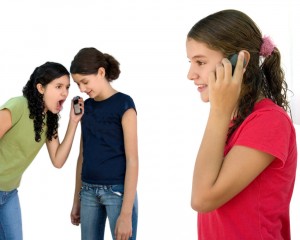
This week’s Q & A question has a lot of potential for good discussion. We received an email with the following question:
Q: “Most youth start cohabiting, ignore grown ups and end up in unplanned marriage which later doesn’t work. What should the youth do once the mistake is done carry the cross or try to persuade and return home (which also raises the question how does the youth manage the return home)?” (I appreciated that this question came from one of our global readers and left the question as it was written.)
Basically, it seems to me that the question at hand is, if a youth is living with someone and gets married at a young age, should they stay in the marriage even if it’s not a good match, or should they leave and try to return home to their parents… and if so, how can they be supported in returning home after making mistakes and/or living on their own.
A: This is a really weighted question with several key points to think about.
Personal vs. Professional Values
As a youth worker, you’re in the position to give advice, support and guidance to young people. However, you also need to be aware of your own values, morals and standards and how those impact on your youth work. For some, personal and professional values cannot be separated and therefore they choose to work in environments in which they can have little or no conflict in their values. For others, it’s a constant struggle trying to align what you think is right in your personal life with what you believe is right as a youth worker to share or not.
Personally, you may view living together before marriage and/or divorce as wrong. Professionally, you need to decide, ‘Am I going to voice my strong dissent before a youth gets into what I consider to be a bad situation, or am I going to let them make their own choices? Then, either way, am I willing to support the youth through their decision?’
I believe the key is sharing your opinion and advice in a way that doesn’t railroad a youth into your point of view – emotive language is a very manipulative way to get a young person to see your point of view. Give them both sides of the argument and allow them to ask you ‘What do you think?’. That way, the door is open for you to be honest about your concerns and reservations in a way that still leaves your professional relationship open. This means that you can still offer support and advice in the future, no matter what decision the teen makes.
Two Wrongs Don’t Always Make A Right
I often feel this way when I hear phrases like ‘Well, she’s pregnant, now they need to the “right thing” and get married.’ The choices have been made, the surprise is on his/her way; how does locking two people into a legal – and for some, spiritual – contract help the situation become fixed?
How does one ‘forever decision’ (like marriage, getting pregnant, etc.) help fix another ‘forever decision’ (like having a baby, having sex for the first time, etc.)? It doesn’t.
Should a youth that got married at a young age be forced to remain in a marriage that is loveless, or worse, abusive simply because divorce is against your personal values as a youth worker? No.
But if you do believe that marriage is a ‘forever decision’ and therefore should be kept together at all costs, what can you do to support the young people in the marriage? Are caring adults working with them to help guide and support them? Have they tried – really tried – counseling? Are they fighting over financial problems; if so, can you help signpost them to the necessary supports to relieve that stress?
I’m not advocating divorce or marriage here; I’m asking in your situation, based on your personal and professional values and your relationship with the youth, what should you be doing? Should you be advocating for one thing or the other, or just providing information that can help the youth make a more informed decision about their options.
Additionally, what are the young person’s values on the subject? Simply because you don’t see marriage as a ‘forever decision’, doesn’t mean that they don’t and they may want your help to make their marriage work. Are you willing to help them work through their issues, even if you think getting married young is a huge mistake?
Support At Home
Should the youth return home? I guess that really depends on the home, the youth, the parents and the situation.
It can be hard moving home with family after a youth has been on their own, making their own decisions, running their own life and household. It would take a lot of love, grace and patience on everyone’s part to make moving home a good option after a young marriage (or even just a co-habitation relationship) has fallen apart.
This can be especially tricky if the parents were against the relationship from the start. Youth will need to be prepared for some feedback on their life choices. Not all families are willing to just forgive and forget. They will want to bring up and throw mistakes in the face of the youth again and again (based on their own hurt at having their great advice ignored in the first place). Usually all the feedback comes from a place of love, but it isn’t always expressed in the most loving way and could strain the relationship between the youth and parents.
Questions: What do you think should happen in this situation? Should youth be encouraged to stick out a marriage or other serious relationship and, if it doesn’t work out, should they go home? We’d love to hear your feedback in the comments below.
You can also connect with us by:
- Signing up to receive our posts via email
- Following us on Twitter
- Liking us on Facebook
- Signing up to our RSS feed
 Q: OK, so I work with
Q: OK, so I work with  Q: I’ve heard this term used about quite a lot of young people, but what does “at risk youth” mean?
Q: I’ve heard this term used about quite a lot of young people, but what does “at risk youth” mean? Q: Is it appropriate to sack (fire) a youth worker for a relationship with a youth in the group?
Q: Is it appropriate to sack (fire) a youth worker for a relationship with a youth in the group?